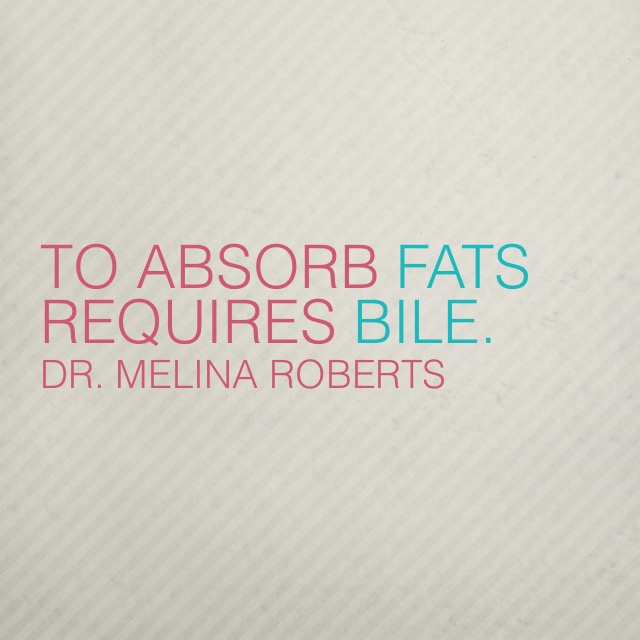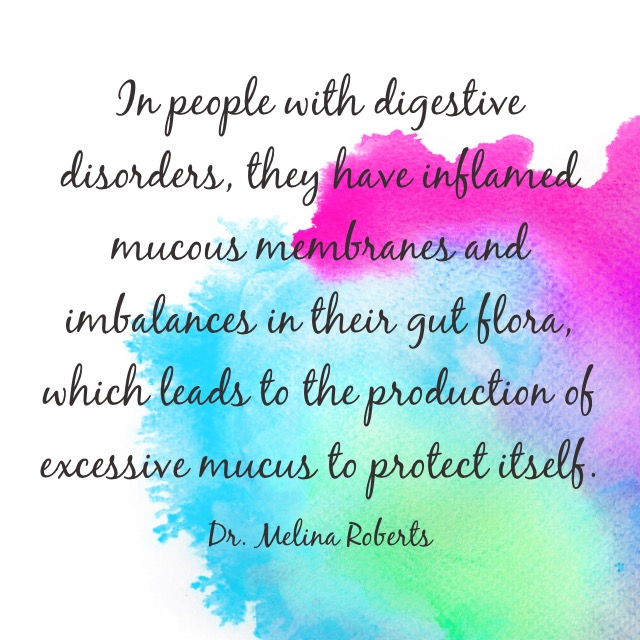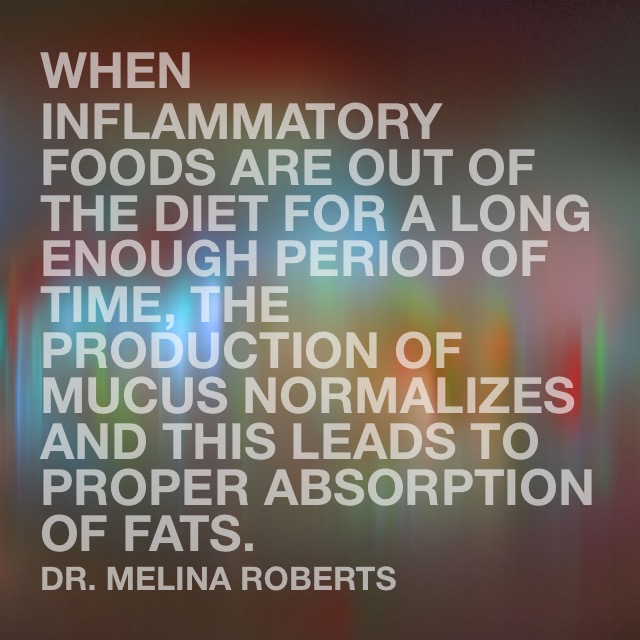Digestive disorders and Fat Absorption
- To absorb fats requires bile
- In people with digestive disorders, they have inflamed mucous membranes and imbalances in their gut flora, which leads to the production of excessive mucus to protect itself.
- These large amounts of mucus interfere with digestion of food including fats
- Mucus coats food particles and does not allow bile and digestive enzymes to get to them
- As a result a lot of fat goes undigested and often comes out as pale greasy stools
- This impaired absorption of fats also causes deficiency in fat soluble vitamins: A, D, E, K
- Clinical experience shows that when inflammatory foods especially starch and sugars are out of the diet for a long enough period of time, the production of mucus normalizes and this leads to proper absorption of fats.




